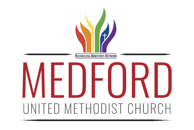
24 Pilate saw that he was getting nowhere and that a riot was starting. So he took water and washed his hands in front of the crowd. “I’m innocent of this man’s blood,” he said. “It’s your problem.”
25 All the people replied, “Let his blood be on us and on our children.” 26 Then he released Barabbas to them. He had Jesus whipped, then handed him over to be crucified.
Reflection
As a disclaimer, I would like to make it known that I am definitely NOT still bitter about never haven gotten to play Lady Macbeth in my acting days – not still bitter at all.
But Lady Macbeth is perhaps one of the most interesting women ever written in fiction. Basically, Macbeth is about this guy who is told a prophecy that he will be king and that his friends’ children will inherit the throne after him. Macbeth is skeptical yet delighted: wouldn’t that be cool? To be king of Scotland. When his wife, Lady Macbeth hears, she is not skeptical at all and wants to get this show on the road so instead of Macbeth naturally making his way to king, Lady Macbeth convinces her husband to murder King Duncan. He’s reluctant but gets caught up in her plan so he ends up murdering the king and two chamberlains. The king’s sons flee, Macbeth takes the throne, but he’s nervous that he’ll be murdered so the one crime leads to many others. I won’t spoil the end, but it’s worth reading or watching.
There’s a scene more towards the end of the play where Lady Macbeth has taken up sleepwalking in her guilt. And in her sleep, she confesses to many of her sins but is constantly trying to wash her hands of the blood she’s spilt. Whenever I see or read this scene in the play, I instantly think of this moment where Pilate makes this public, dramatic, visual tangibly showing him rid himself of the responsibility of the death of an innocent person. Pilate wanted nothing to do with any of this. Pilate did not view Jesus as a criminal and did not want him to be punished and executed. But Pilate allows others to lead his decisions, leading to thousands of years of being known as the one who sentenced the Son of God to death. He believes the crowds words can relieve him of his guilt, and he tries to be sure to tie that up with a bow by visually demonstrating that relinquishing of responsibility. No, he alone is not responsible for what happened to Jesus, but like Lady Macbeth desperately trying to scrub her sins off her hands, there’s always a dreaded spot that he then had to live with.
by Rachel Callender
For Pondering & Prayer
With Christ’s crucifixion, we are forgiven of our sins. We don’t need to do things like push responsibility for something we said or did onto someone else, we don’t need to “wash our hands” of something, because in Christ, we are given the grace of God’s unending love for us. Pushing off taking ownership of our sins only keeps us attached to them, it leaves a spot. On this Good Friday, I invite you to really take some real, honest time in prayer to truly be honest and vulnerable about the sins that God wants to free you from.
Prayer: Holy God, thank you. Amen.









Comments are closed.